Emergency Dentistry
We understand that dental pain can be unpleasant and disruptive and we are here to help. We want to help you get out of your immediate pain – and then work with you to develop a complete treatment plan to ensure your long-term dental fitness.
We endeavour to see you as quickly as possible, whenever you are a registered patient or not.
Our clinic opening times can be found here, or you can contact us at 01865 760000 and we will do all that we can to help during opening hours.
New Patients
Our commitment to you is that you will always receive the best treatment we can provide; we aim to invest in your dental well-being and give you a healthy and beautiful smile.
The first person you will usually speak to at the practice will be our receptionist, who will direct you to one of our dentists that will chat to you about any concerns and issues you may have with your smile, and explain how we will be able to help. If you decide to join our practice, you will receive a comprehensive dental assessment, where we will examine your gums, teeth and existing dental restorations, as well as screen for oral cancer.
Don’t worry if you haven’t been to the dentist for years – treat your initial consultation as a fresh start. Many of our new clients worry about visiting the dentist, but our friendly, sympathetic team can help allay any fears; they will go out of their way to make you feel more relaxed.
During the consultation, we will discuss our findings and your treatment options.
To arrange a new client consultation please call us at 01865 760000 or complete our contact form below.
Check-up Appointments
During regular exam appointments, we check the health of your gums and jaws. Additionally our Dental Hygienists are able to gently remove tartar and plaque deposits from your teeth, as well as offer oral hygiene tips to maintain beautifully clean teeth in-between your routine dental appointments.
We also use digital X-rays to compliment your dental examination, providing an efficient way of gleaning a lot of information from your mouth, which further helps with treatment planning.
At each dental health check appointment our dentists screen for oral cancer, and are able to provide a two-week fast-track specialist referral if necessary.
We recommend a regular dental hygienist appointment as well as regular oral health checks with the dentist every 6 months for most patients. If you are a registered with S Dental Studio it is quick and easy to make regular appointments with one of our experienced dental hygienists.
Fillings and Composite Bonding
Our highly skilled team has many years of experience fixing broken, worn, damaged and unsightly teeth with tooth-coloured filling materials. If the tooth is too broken down for a filling to be placed directly to the tooth, we are able to work together with the Dental Technicians in our on-site lab, who use modern porcelain materials to create astonishingly natural-looking restorations, which we then bond to the natural tooth, with consistently excellent results.
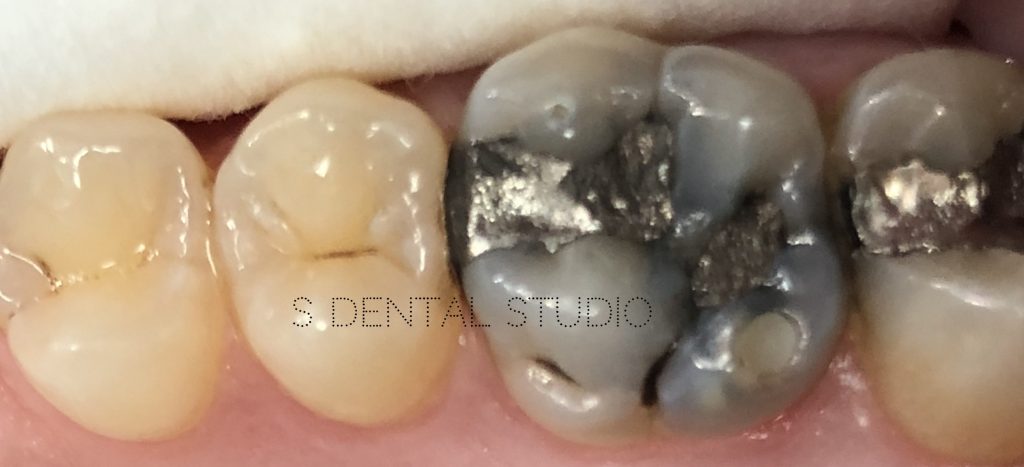
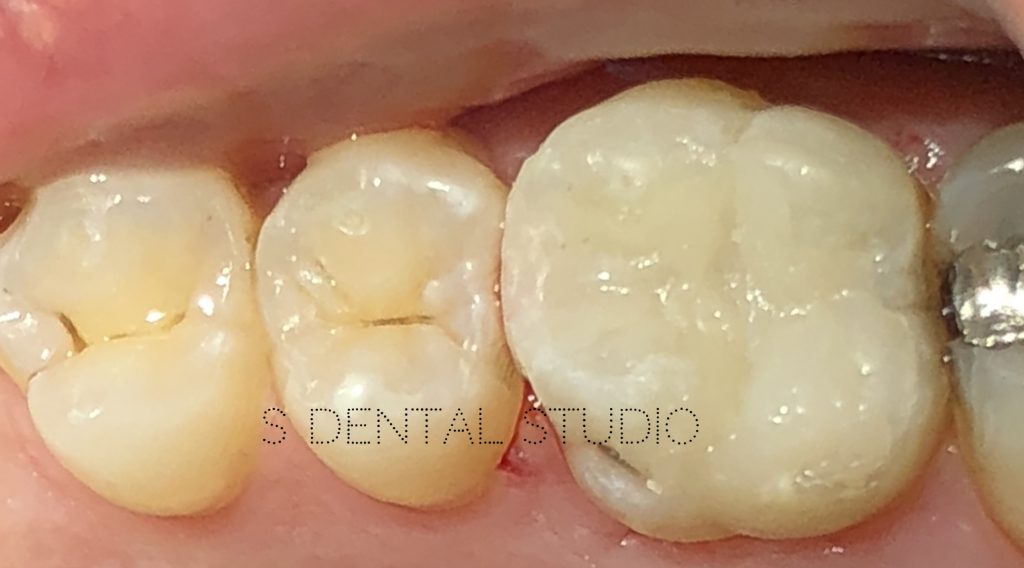
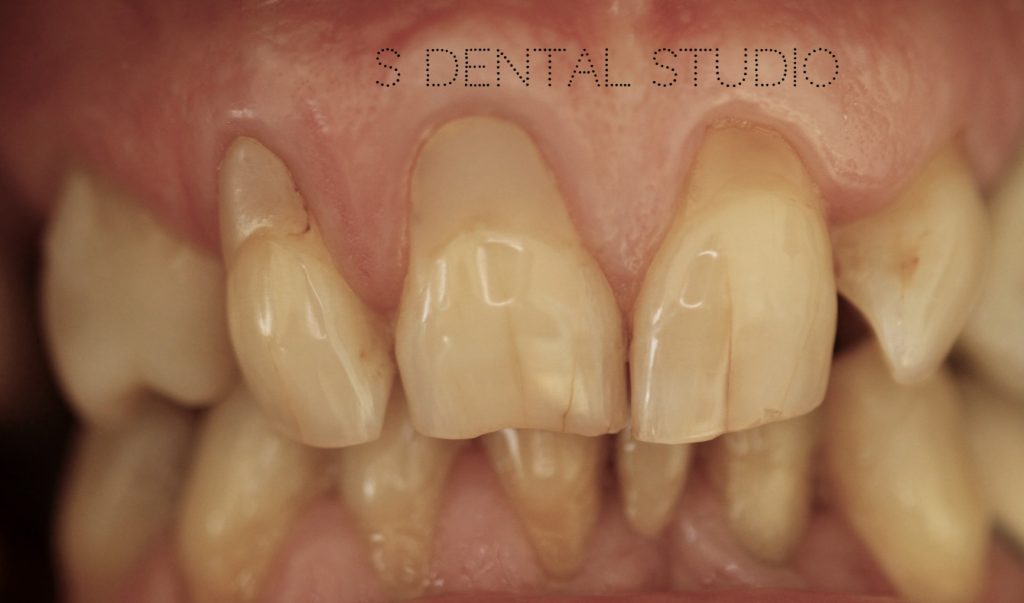
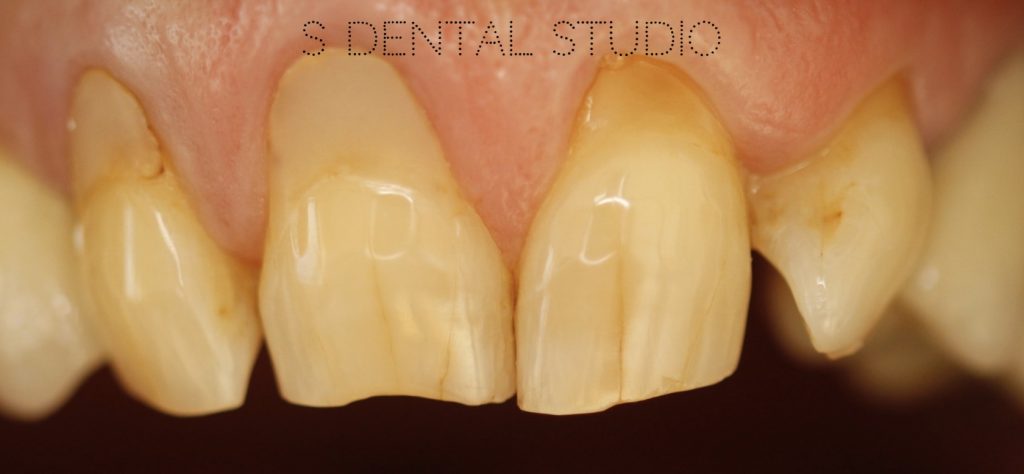
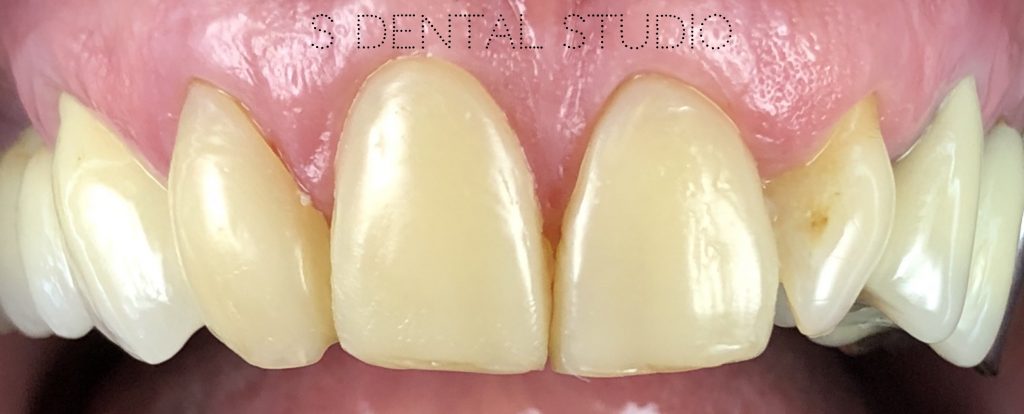
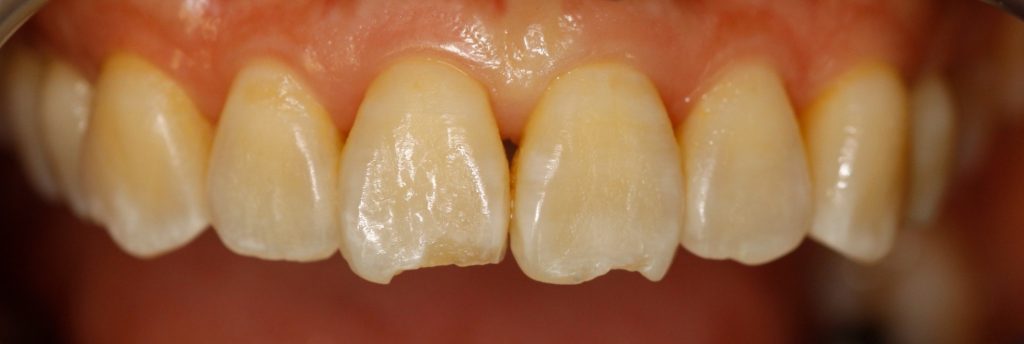

Fissure Sealants
Deep pits and grooves can be found on the chewing surfaces on the back teeth. Such pits and grooves are called ‘fissures’ and are usually so narrow that toothbrush bristles and streams of water are not able to clean them effectively. These form a favourable environment for bacteria to flourish, often resulting in tooth decay. Fissure sealants form a protective layer that keeps food and bacteria from getting stuck in the tiny grooves in the teeth, causing tooth decay and bad breath.
Sealants are applied easily and painlessly. No drilling is required. The tooth is properly cleaned, treated, dried, and the sealant applied. It then hardens to form a protective coating over the tooth. While any tooth with pits and fissures can be treated, provided the surface to be filled is sound and has not been previously filled, the most commonly treated teeth are the molars and premolars.
Many studies show sealants to be very effective in preventing decay in fissures. They do, however, require regular maintenance by your dentist. This can be performed with your six- monthly check-up. Recent studies show that a properly placed sealant will last as long as a typical amalgam filling. Even if a sealant is damaged or lost, it is easily repaired and replaced. Regular maintenance by your dentist will help them last.
Inlays
Inlays and onlays are very strong and usually last much longer than fillings.
These restorations are suitable for the chewing surfaces of back teeth, and especially for large repairs, where it can be difficult to make a white filling look natural.
An inlay fits within the confines of the tooth. An onlay covers the entire chewing surface of the tooth. These can be made of either plastic resin or porcelain, and will match the rest of your teeth in colour.
The procedure involves :
- Removing decayed tooth structure or old fillings and preparing the tooth cavity.
- Taking an impression ( with a putty-like material ) to record the shape of the tooth being repaired and the teeth around it .
- Giving the impression to an experienced, highly trained dental ceramist to fabricate custom-fit inlay or onlay .
- Using a temporary filling to protect the tooth that is being repaired while you wait for the inlay or onlay to be made.
- Bonding the inlay or onlay in place on your next visit – the dentist may also make small adjustments, so that the tooth is comfortable to bite on.
Endodontics (Root Canal Treatment)
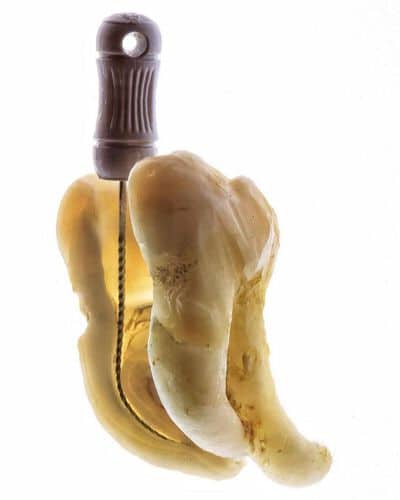
Endodontics refers to the study and treatment of the soft inner ‘pulp’ of the tooth as well as the tissues surrounding it. In cases of disease or trauma, special root treatment is sometimes required to preserve the tooth by removing the damaged pulp.
Root canal treatment can become necessary if the pulp becomes infected or inflamed, or the nerves in the pulp die. This can often result in an abscess developing. The causes of such a situation can be manifold. The treatment process involves the removal of the affected pulp tissue and nerve. The inside of the tooth is then disinfected with an anti-bacterial solution, after which the root canals are filled and the tooth is sealed with a crown or filling to prevent re-infection. Once the tooth has healed you will be able to use it normally.
The process is usually painless as your tooth is anaesthetised.